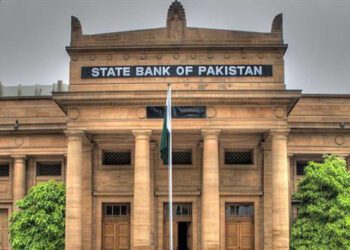In a significant boost to Pakistan’s financial stability, the State Bank of Pakistan (SBP) reported a $1.04 billion increase in foreign exchange reserves for the week ending May 16, pushing the central bank’s total reserves to $11.45 billion.
According to official data released Thursday, the nation’s total liquid foreign reserves—which include commercial bank holdings—reached $16.65 billion, with $5.20 billion maintained by private sector banks.
The SBP credited the sharp rise in reserves to the second disbursement from the International Monetary Fund (IMF) under the Extended Fund Facility (EFF). The latest tranche, totaling SDR 760 million (approximately $1.02 billion), was received on May 13, just days after the IMF Executive Board concluded its first review of Pakistan’s economic performance under the EFF arrangement.
“During the week ending May 16, 2025, SBP reserves increased by $1.04 billion to $11.45 billion, following the receipt of SDR 760 million from the IMF,” stated the central bank.
This follows a more modest uptick of $71 million in reserves recorded the previous week, bringing SBP holdings to $10.40 billion at the time.
The injection of IMF funds is seen as a positive signal for international investors and financial markets, reflecting Pakistan’s continued adherence to structural reform commitments tied to the EFF. Analysts note that the rise in reserves could help strengthen the rupee, improve balance of payments, and reinforce confidence among multilateral donors and credit rating agencies.
Economic experts also point out that the higher reserves will bolster Pakistan’s ability to manage external debt repayments, curb inflationary pressures, and meet import requirements, particularly in a climate of volatile global energy and food prices.
The successful IMF review not only unlocked this tranche but also paved the way for future disbursements under the multi-billion-dollar EFF program. The government is expected to continue implementing fiscal discipline, expanding the tax base, and introducing energy sector reforms as part of its long-term economic stabilization strategy.
As Pakistan prepares for its next IMF review, the central bank’s growing reserves signal a step forward in regaining financial resilience and restoring macroeconomic balance.


































